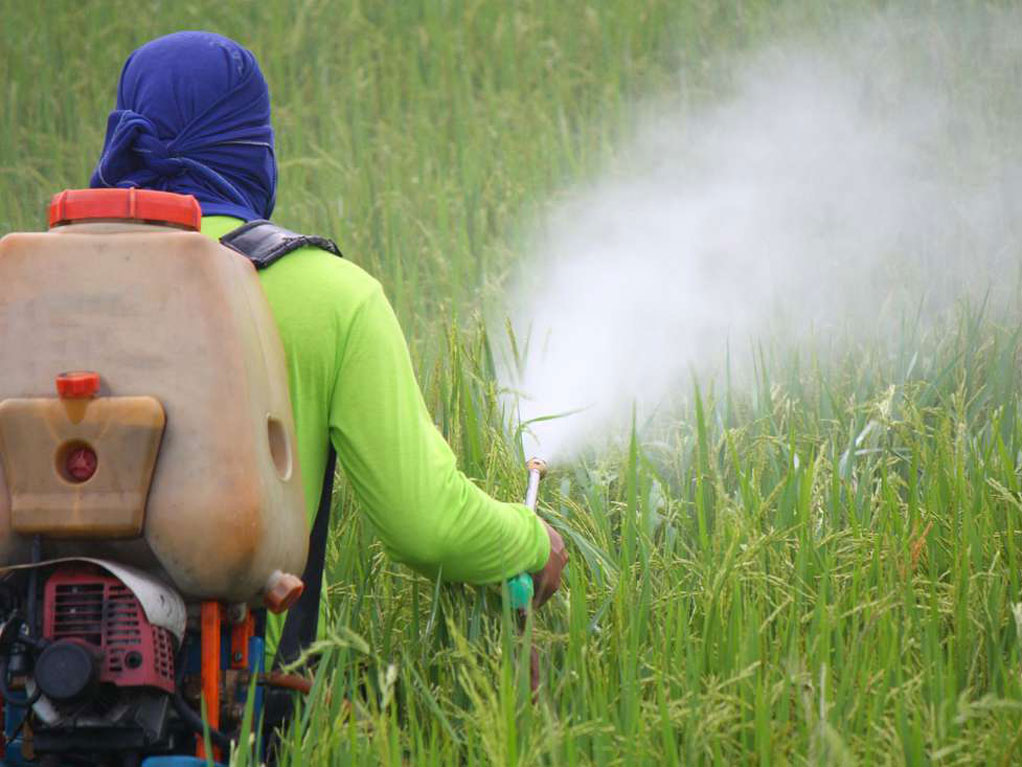By Eric Kimunguyi, CEO of Agrochemicals Association of Kenya
Using pesticides on our crops lifts our agricultural production by as much as 90 per cent, but it’s a boon to food production that requires powerful regulation and strict safety measures to ensure we gain in food and do not lose in any way in human health or the environment.
In Kenya, achieving that stewardship is based on four regulatory pillars.
The beginning point for that structure is the fact that pest losses suffered by untreated crops can be extremely high. In 2017, for example, we suffered one of our largest ever crop losses as 70 per cent of our staple crop, maize, was savaged by the destructive bug, the Fall Army Worm. An estimated 16m bags of maize worth Sh2bn were lost as farmers without approved pesticides resorted to touring fields squashing the worms individually, or using ashes or tobacco to try and slow the invasion.
The losses were far lower in 2018, after the pest control industry developed products to manage the infestation based on experiences with the same worm in South America.

Yet, even as the country grapples with new pests such as these, public declarations of pesticides as a health threat have gathered pace, with the most recent presentations openly distorting facts in a bid to present pesticides as responsible for Kenya’s rising levels of cancer.
Indeed, the details of such claims have been so badly misrepresented as to cast doubt on the integrity of those involved. Yet, without raising public understanding of the pesticide regulation process, it is hard to demonstrate where the falsities are being deployed and thus re-establish the trust that is being undermined in the regulator, the Pest Control Products Board (PCPB).
In fact, Kenya’s pesticide regulation has recently been reviewed to update a four-pillar system that continues to provide outstanding health and environmental protection from pesticides.
The first pillar in that system is a comprehensive scientific review and risk assessment, in collaboration with experts from other jurisdictions, which spans more than 200 separate studies of health and environmental impacts, carried out for six to nine years at a cost of an average Sh23bn.
These tests include assessments of how a product is absorbed, distributed metabolised and excreted by the human body; its toxicity level when ingested, when inhaled, to the skin and central nervous system, and across eye irritation, skin irritation, and neurotoxicity. It is also tested to establish whether it alters DNA, or causes cancer, gene mutation or any birth defects in long term studies whose reports must be submitted for evaluation.
Products are also tested for their effects on the environment, across land and aquatic animals, vegetation, water, air, homes, and soils.
Yet this entire barrier of international testing and results has been ignored by campaigners who claim the Kenyan public is being subjected to untested products.
In calling for local testing, no campaigner has explained how Kenyans would benefit from redoing these international tests.
What we do test for in Kenya, however, as the second pillar in our regulatory protection, are residues, looking for any micrograms of pesticide left on crops to make sure these are below the safe levels that are set internationally.
The maximum safe residue levels for each product and each crop are set by the World Health Organisation and Food and Agriculture Organisation Residue Committee, at meetings that the PCPB attends.
The Kenya Plant Health Inspectorate (KEPHIS) then tests crop samples constantly to ensure the pesticide residues are at safe levels, alerting authorities where they are not.
The third pillar is constant monitoring of new information worldwide. The banning and the controlled use of hazardous pesticides is agreed upon under global conventions, such as the Rotterdam, Stockholm, and Montreal Protocol on Substances that Deplete Ozone Layer, all of which Kenya is a signatory to. Kenya automatically bans any pesticide banned under these conventions. However, if a pesticide is banned by just one country, but other leading regimes continue to class it as safe, the PCPB reviews the evidence and decides case by case.
The final pillar is ensuring safe use – stewardship – with Kenyan law requiring all approved products are labelled with safety instructions in both Swahili and English. To ensure farmers follow these instructions the proposed Bill updating the current regulations recognises that agriculture is now devolved and assigns county governments responsibilty for agricultural extension on safe pesticide use.
That extension spans how to identify genuine pesticides, safely use, transport and dispose of them, and wear protective clothing when spraying to avoid fumes and skin contact.
As a sum, so stringent is Kenya’s pest control regulation that the country is Africa’s second largest exporter of fresh produce to international markets that demand good agricultural practice (GAP) and absolute rigour in pesticide safety.
There are no benefits to claiming risks that science does not support, or in deteriorating into populism. The facts are that products are tested, all the international standards are applied, and pursuing a repeat of years of testing, or banning pesticides used freely in the other jurisdictions that Kenya benchmarks, will simply cost us more than a third of our food production.
Kenyan Business Feed is the top Kenyan Business Blog. We share news from Kenya and across the region. To contact us with any alert, please email us to [email protected]












